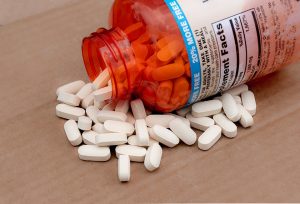Fresh Veggies vs. Supplements (Which is Better?)
If you’ve been following me for some time, you’d know I’m a big fan of fresh whole vegetables. So today, I’m going to talk about something that people have different opinions on, and that is fresh veggies vs. supplements.

Well, we’re not simply just focusing on veggies but really all whole food categories like fruits, nuts, and even whole grains.
So can supplements be just as good as whole food? The market today is filled with nutritional supplements that claim to offer the same benefits as whole foods because they contain the same ingredients. So one might think that they actually do have the same benefit.
However, that’s not the case most of the time.
Fresh Veggies vs. Supplements: Is It Better to Get Nutrition From Fresh Vegetables or Supplements?
Disclaimer: The information above is just for your entertainment and should not be construed as medical advice. Please consult a doctor before starting on any supplements.
Supplements come in a variety of forms and are there to help you reach your nutrient intake requirements or help with a specific nutrient that you might be lacking. For instance, vegans often take Vitamin B12 supplements as it’s mostly found in animal products.
Other common supplements include vitamins, herbs, minerals, and amino acids. All those are found in fresh vegetables, fruits, nuts, etc.
A Council for Responsible Nutrition (CRN) survey found that as much as 77 percent of people in the US take dietary supplements. That’s a really high number showing that people indeed have confidence in nutritional supplements and often use them to get the essential nutrients they need.
However, how many of such people mostly depend on supplements is unclear.
It’s unsurprising that Americans are relying on supplements so rampantly. The traditional Western diet lacks many essential vitamins and minerals that have to be supplemented otherwise.
There are studies that have explored the difference between nutrition from food and that from supplements. So let’s look at the case for each.
Nutrition from Fresh Vegetables
I don’t need to talk a lot to make a case for fresh vegetables or really any kind of whole food. For starters, that’s how nature has meant for us to eat food. But I realize there are people who may not have the capacity or time to ensure they eat whole foods all the time.

However, to show you how fresh foods are better than supplements, here are some of the benefits of eating fresh whole foods:
- More Fiber: Eating fresh vegetables and fruits can give you your fix of fiber every day. It cannot be emphasized enough how important fiber is for your body. While there are supplements for fiber like psyllium, the best fiber you can get is directly from food in its purest form.
- More Nutrients: Supplements typically contain a particular set of nutrients and sometimes just one or two. Fresh veggies, on the other hand, are loaded with nutrients. Not just nutrients, they may also contain other substances, most importantly, antioxidants.
- Lower Risk of Diseases: There are countless studies that have shown that regularly eating vegetables can reduce the risk of disease. For instance, eating leafy greens can reduce the risk of type II diabetes.
- Vitamins and Minerals: If you eat a wide range of vegetables, including cruciferous and leafy greens, you’ll get all the vitamins and minerals your body requires.
You won’t be deficient in any particular minerals or vitamins, except for Vitamin B12, which you may have to get from very specific plant-based sources, or yes…a supplement. (This one’s important enough to make an exception)
Nutrition from Supplements
When considering fresh veggies vs. supplements, it’s important to know a little backstory. Supplements started as an easy way to get the necessary nutrients someone might be lacking.
It’s mostly used by adults, especially older people with medical conditions. However, with time supplements became a regular part of people’s nutrient intake.
One study in the Journal of the American College of Cardiology found that supplements like multivitamins, calcium, and vitamin D did not have any added benefit or hazard, for that matter, in the prevention and treatment of cardiovascular disease.
Experts still recommend getting most of the nutrients through diet. It’s even mentioned in the Dietary Guideline for Americans.

If you’re relying too much on supplements, then there are a few red flags. Studies have found that overuse of supplements can, in fact, harm you.
In the Annals of Internal Medicine, researchers published a study that analyzed data from over 27,000 participants. The study evaluated that an excess intake of calcium through supplements increased the risk of mortality through cancer.
On the other hand, intake of vitamins, calcium, and magnesium through food seemed to decrease the risk of mortality overall.
In the same study, researchers found that those who took Vitamin D supplements without needing them (no deficiency in Vitamin D) may be increasing the risk of death. So it’s clear that with supplements, it’s easier to have adverse effects with certain nutrients, which may prove hazardous for your health.
The view about multivitamins is a bit mixed, as studies show that they are not necessarily harmful. However, an excess of Vitamin A can be dangerous, as noted in the study above.
When Can You Use Supplements?
Supplements aren’t all bad. They can help fill the nutritional gaps in your diet and help you live a healthier life with a well-balanced food intake. So in instances where you might be lacking a particular nutrient or a bunch of them, you should take supplements to make up for them.
Obviously, it’s better to get those essentials from supplements than not getting them at all.
If you’re an adult who follows a whole-food plant-based diet and ensures getting a wide range of whole foods, you’re usually in the clear. You don’t necessarily need to take supplements, which it seems like everyone takes these days. However, in certain cases, you should take supplements vs. just veggies.
Who Should Take Supplements?
Supplements may be a good option for the following groups:
Pregnant Women: Women who are expecting or are trying to get pregnant can use supplements. Folic acid has been found to be very beneficial during pregnancy.
Similarly, you also want to ensure you’re getting enough vitamins, iron, calcium, and omega 3 fatty acids, as these substances are essential for the development of your baby and healthy delivery.
People Over 50: As you age, you’re more likely to get sick and weak. Therefore, it’s imperative that you get the essential minerals and vitamins to stay in good shape. In people aged 50 and above, especially women, a calcium deficiency can develop, which can make bones even weaker.
Calcium supplements and multivitamins are often recommended for seniors.
Poor Appetite: If you naturally or because of a condition have a small appetite, you can take supplements to ensure that you’re getting the nutrients you need to function properly. Those who have a poor diet can also look into supplements and talk to their doctor about it.
Medical Conditions: People with certain medical conditions may be prescribed supplements to help cover the gap in their nutrition. For instance, people with anemia often take iron supplements. Similarly, people with a medical condition that affects their food intake or digestion can take supplements, if recommended by their doctor.
Vegans: Vegans who don’t get Vitamin B12 through fortified foods should get it through vitamin B12 supplements which are easily available.
Dr. Michael Greger of NutritionFacts.org recommends the more inexpensive Cyanocobalamin variety. Check out his short video below to learn why? They can also supplement their iron if they have a deficiency.
People in Dark/Cold Climates: Sunlight is the main source of Vitamin D. If you live in a place that hardly sees the sun or has long dark winters, you may want to get your Vitamin D through supplements. Newborn babies may also need Vitamin D supplements.

Disclaimer: The information above is just for your entertainment and should not be construed as medical advice. Please consult a doctor before starting on any supplements.
What Supplements Should I Take and How Much?
It’s best to speak to a physician about taking supplements to meet your nutrition needs. In many cases, you may be prescribed by the doctor, as a result of a deficiency or a risk of deficiency. But to give you an idea, here are some common supplements and their respective amounts:
Calcium
Dairy products do contain calcium, but they are not the only source of this vital mineral. If you’re eating your leafy greens regularly, you’re getting ample calcium. However, if your diet lacks those and dairy (because you’re vegan or lactose-intolerant), you should ensure to get calcium.
Adults need 1000 to 1200 mg of calcium every day. So plan your dose accordingly. For instance, if you’re getting 500 mg through food, make sure that your supplement dose doesn’t exceed 500 mg or 700 mg if you need 1200 mg a day.
Multivitamins
Multivitamins generally come in controlled dosage. Children, in particular, can benefit from the daily intake of multivitamins. Most multivitamins, for kids and adults both, contain just enough vitamins to meet the daily requirements.

With so many varieties, forms, and dosages, it’s best to consult an expert to find out how much multivitamin is good for you.
Iron
Iron is necessary for your overall health as it’s instrumental for your blood carrying oxygen to all the organs. So it goes without saying that there’s no compromise on iron.
The amount of iron one needs differs by sex and age. Here’s what USDA recommends:
- Women (19 to 50 years old): 18 mg per day
- Women (51 years and above): 8 mg per day
- Men (19 years and above): 8 mg per day
If you’re iron-deficient and need to take supplements, consult with your doctor to work out the best amount for you per day as per your diet. A very high dosage of iron can be toxic. For adults and children over 14, the highest dosage that is safe in a day is 45 mg. However, taking that much every day can also be hazardous.
Vitamin D
If you need to take Vitamin D supplements or are just being cautious, you can take 10 micrograms of Vitamin D daily. This dosage is good for children aged one to four years who don’t get enough sun, as well as for adults who may be lacking it for any reason.
How to Add More Whole Foods/Vegetables to Your Diet?
While taking supplements can help you avoid health issues related to nutrient deficiencies, you should try your best to add more fresh vegetables, fruits, nuts, seeds, and whole grains into your diet. No supplement can beat the nutrition that food in its natural form can.
I realize that it’s difficult to keep a check on which vegetables and how many you’re eating in a day. Fork Over Knives recommends eating a rainbow of vegetables, and I find that approach very helpful.
So on your grocery list, you can add fresh vegetables by colors and buy different colored vegetables. That way, you get a variety of foods in your basket, and ultimately, in your body.
You can also workout weekly meal plans where you prioritize fresh produce over any other ingredients. Yes, freshly cooked vegetables are the most delicious. However, you can also freeze and refrigerate your meals in advance. Some veggies taste just as good after a few days as they do fresh out of the store.
Wrap Up
So when it comes to fresh veggies vs. supplements, fresh veggies are a clear winner. That said, supplements can be very beneficial where you lack certain nutrients or can’t get a variety of fresh produce. Nevertheless, always try to get most of your nutrition through whole foods.
Consult with a doctor when you think you need to supplement your nutrients. Also, keep a check on your diet as to what and how much you’re eating. That information can help you and your doctor come up with the right dosage.











